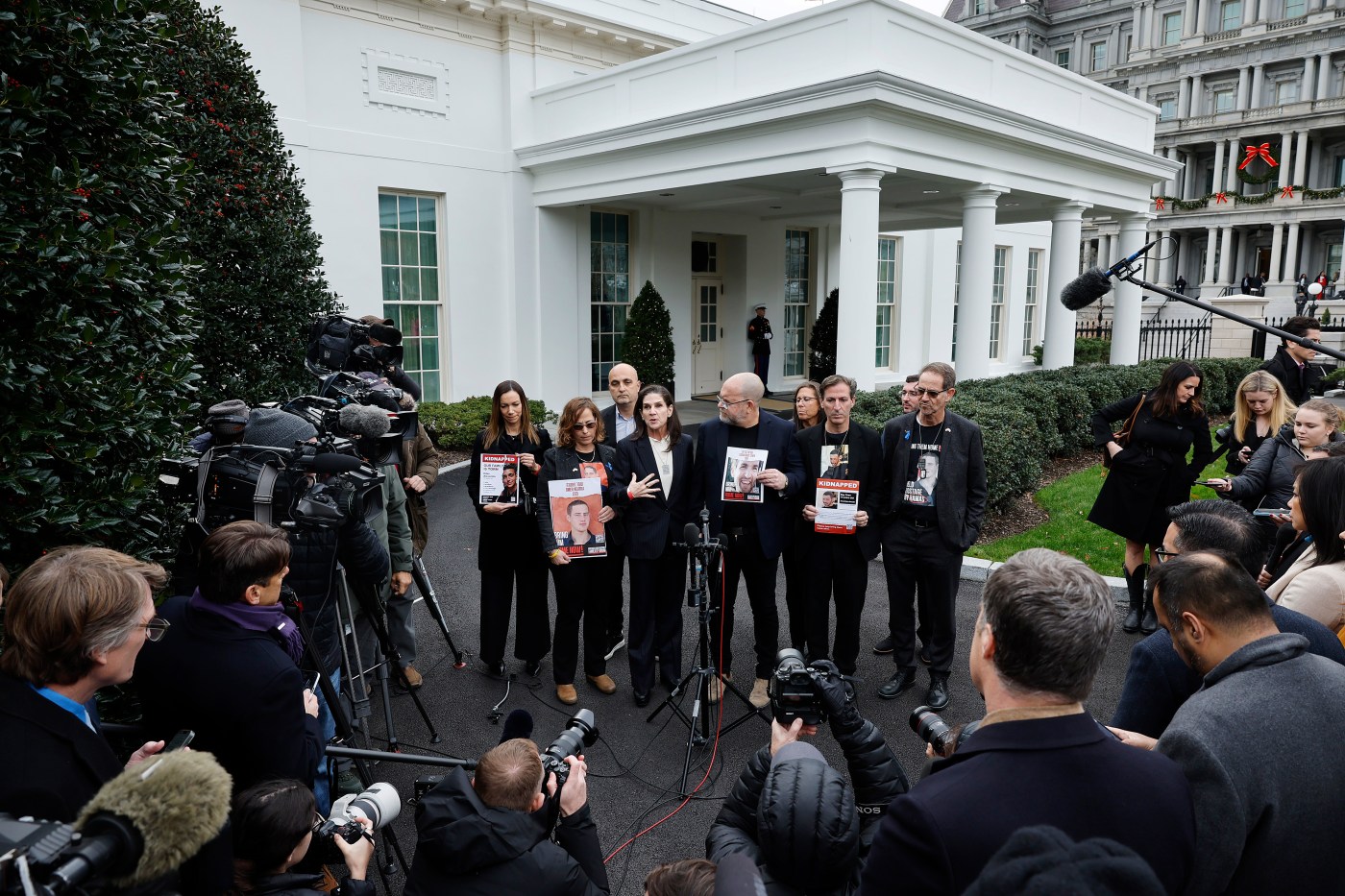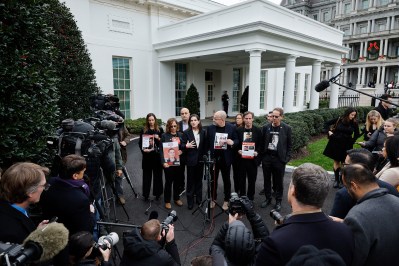Eight Americans were believed to be among the more than 240 hostages taken by Hamas into Gaza on October 7. Two of those eight—most of whom were dual U.S.-Israeli citizens—were released in October, but one has been confirmed dead and five are suspected to still be alive and in Hamas captivity.
In a recent tweet, Bill Ackman—the billionaire manager of the hedge fund Pershing Square Capital Management—claimed that President Joe Biden has expressed little concern for the hostages. “I can’t think of one example in the last 181 days where @POTUS Biden has expressed concern for the American hostages that are still being held by Hamas,” Ackman’s tweet read.
Biden, however, has recognized the American hostages in Gaza on numerous occasions since October 7, and his administration has routinely expressed its commitment to securing their release.
On December 13, 2023, Biden held an in-person meeting at the White House with family members of the Americans in Hamas captivity. “We felt before and we’re only reinforced in seeing and believing that we could have no better friend in Washington or in the White House than President Biden himself and his administration,” Jonathan Dekel-Chen, a father of one of the hostages, told reporters after the meeting.
On January 14, the 100-day anniversary of the October 7 attacks, the White House released a statement from Biden expressing concern for the return of American hostages. “For 100 days, they have existed in fear for their lives, not knowing what tomorrow will bring,” it read. “For 100 days, their families have lived in agony, praying for the safe return of their loved ones. And for each of those 100 days, the hostages and their families have been at the forefront of my mind as my national security team and I have worked non-stop to try to secure their freedom.”
The White House released an additional statement on March 8—Wrongful Detainee Day—recognizing American hostages being wrongfully held abroad, including in places like Gaza. “Today—and every day—the United States reaffirms our sacred pledge to American hostages and detainees wrongfully held abroad,” it read. “We see you. We stand with you. We will not stop working until you are home and reunited with your family.”
Family members of the American hostages in Gaza were also invited to Biden’s State of the Union address on March 7, where he promised his administration would continue working to bring hostages home. “Here in this chamber tonight are families whose loved ones are still being held by Hamas,” he said. “I pledge to all the families that we will not rest until we bring every one of your loved ones home.”
Biden echoed these remarks again in a March 12 statement following confirmation of the death of Itay Chen, one of the U.S. citizens suspected to be in captivity. “Today, our hearts are heavy,” the statement read. “In December, Itay’s father and brother joined me at the White House, to share the agony and uncertainty they’ve faced as they prayed for the safe return of their loved one. No one should have to endure even one day of what they have gone through. At the end of our meeting, they gave me a menorah—a solemn reminder that light will always dispel the darkness, and evil will not win.”
“Today, as we join Itay’s parents, brothers, and family in grieving this tragic loss, we keep this reminder close to our hearts,” Biden’s statement continued. “And I reaffirm my pledge to all the families of those still held hostage: we are with you. We will never stop working to bring your loved ones home.”
If you have a claim you would like to see us fact check, please send us an email at factcheck@thedispatch.com. If you would like to suggest a correction to this piece or any other Dispatch article, please email corrections@thedispatch.com.







Please note that we at The Dispatch hold ourselves, our work, and our commenters to a higher standard than other places on the internet. We welcome comments that foster genuine debate or discussion—including comments critical of us or our work—but responses that include ad hominem attacks on fellow Dispatch members or are intended to stoke fear and anger may be moderated.
With your membership, you only have the ability to comment on The Morning Dispatch articles. Consider upgrading to join the conversation everywhere.